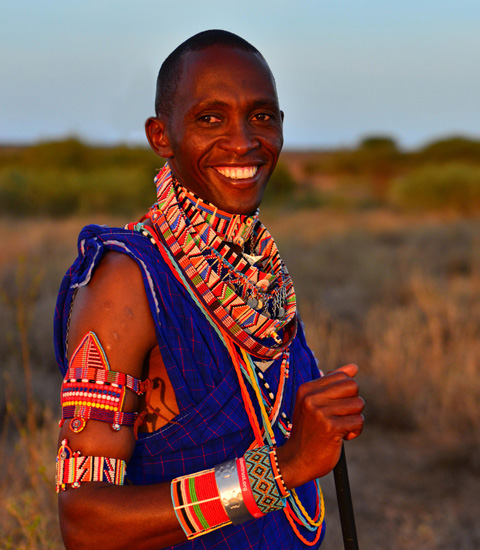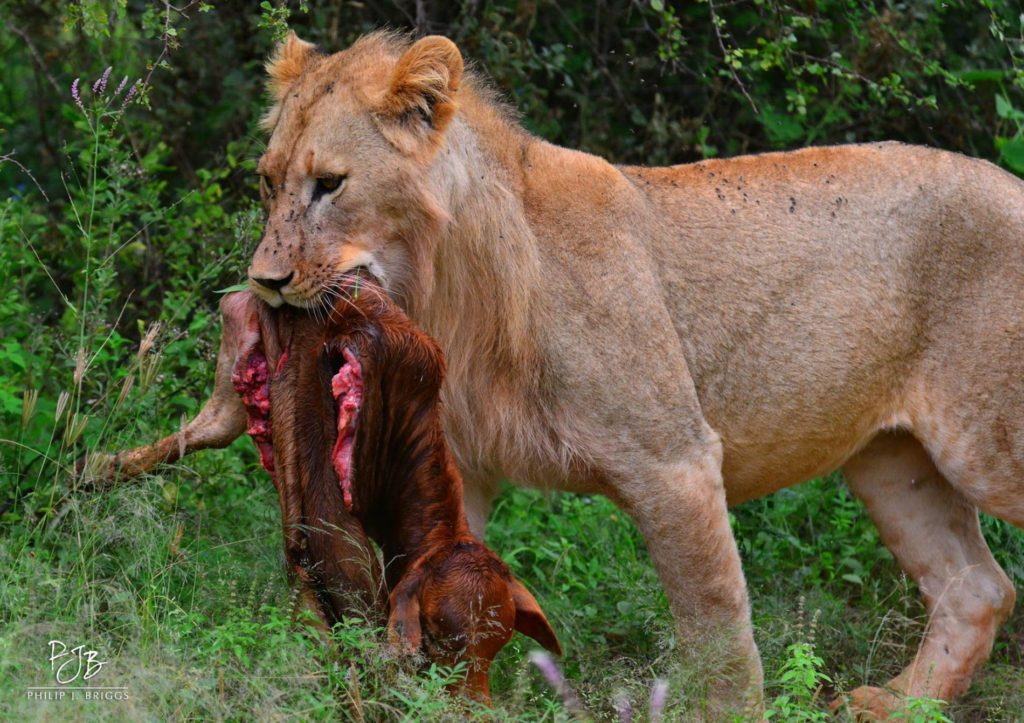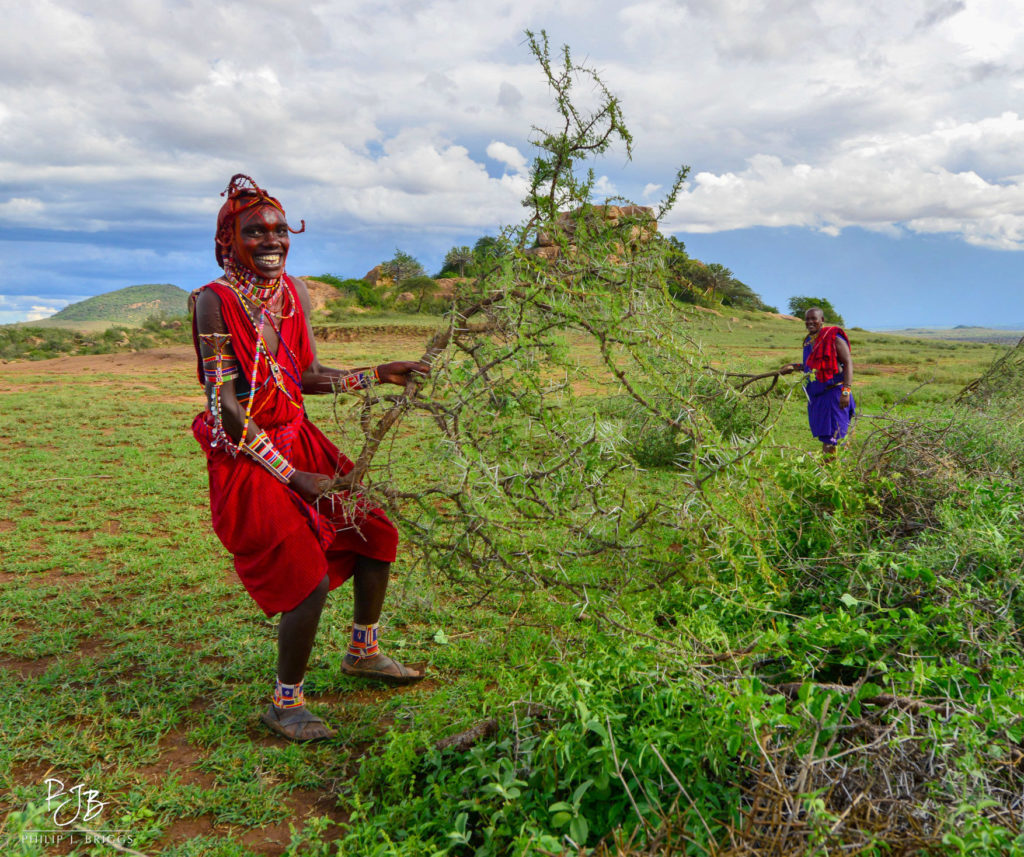A Quest to Understand Lion Killing

Last year, our Program Manager Luke Maamai successfully completed his Master’s thesis in Conservation Biology at University of Kent. Below, Luke shares some main findings from his research, which offers new hope for lions in our ecosystem, and guidance for how we can continue to enable coexistence in a changing landscape.
In order to understand lion killing in our area, I wanted to understand why Maasai kill lions today, as well as determine how we can better integrate cultural contexts to improve conservation efforts. I interviewed 105 Maasai men from the three communal group ranches surrounding Lion Guardians’ operating area. I spoke to both old and young people in order to learn about different perspectives on cultural values and views on conservation. Most interviewees (60%) are dependent solely on livestock-keeping to support their families; the other 40% are employed by conservation and tourism organizations (although this figure has certainly been affected by the COVID pandemic). In addition, 71% of the interviewees did not have any formal education.
The respondents overwhelmingly believe that the lion population here in the Amboseli ecosystem is increasing and that lions are becoming bolder – for example, that they are approaching closer to bomas and attacking livestock in herders’ presence. More than three-quarters of the respondents stated that they had lost livestock to lions in the past year, and 79% indicated that depredation by carnivores is the biggest problem faced by communities. These responses align with other data from Lion Guardians, which show an increase in local lion density and the frequency of depredations.
The men I surveyed also recognize changing trends within the Maasai culture. The main change they have seen over the last three years is that young individuals are abandoning Maasai culture and the customary laws that guide individuals to adhere to societal rules and traditions. As a result of this trend, local people do not value their livestock as much as in the past; previously, only mature herders were allowed to herd cows and shoats, but today, many small boys herd livestock alone. This change, combined with an increasingly large and bold lion population, is enabling conflict between lions and humans to flare.
Yet at the same time, I found evidence of high levels of tolerance in communities. Overall, 80% of respondents want to see lions in their ecosystem, and the vast majority of men do not feel that they should kill a lion that has attacked their livestock. But tolerance seems to depend greatly on age. For example, an 85-year-old elder stated, “I wish there are no lions in this community so we can keep as many cows without any fear for lions killing our livestock and threatening the lives of our young herders.” Young people, on the other hand, tend to want lions in their ecosystem. Conservation education and direct benefits were quoted by the majority of respondents as the reasons why young people are more tolerant of wildlife than older people. A murran explained, “I killed five lions when I was young, and was arrested, beaten, and fined. I did not bring any benefit to my community, but rather shame and loss to my family. Now that I am employed as a Lion Guardian, I protect lions, offer support and help to my community, and educate my peers on the importance of lion conservation. I can now buy a cow and pay school fees for my kids.” This kind of increasing tolerance among young people, driven mostly by conservation benefits and initiatives, signifies hope for the future of lions outside protected areas.
But for this future to become a reality, we must invest in solutions based on capacity-building and endeavors that support peaceful interactions between wildlife and local people. We are continuing to use the data collected by these surveys to improve Lion Guardians’ work, as well as assist other organizations seeking sustainable conservation solutions.
The Lion Guardians family is proud of Luke for his incredible educational achievement, and grateful for the new knowledge he has accumulated through his research!





Leave a Reply